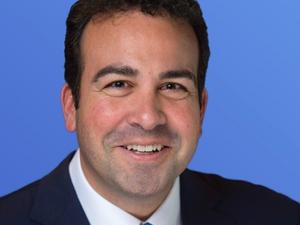Like in business communities across the country, companies in the D.C. region have suffered during the coronavirus.
But some — small startups, fast-growing biotechs and large health care providers — have risen to the challenge and blossomed.
We’ve watched Novavax Inc. (NASDAQ: NVAX), Emergent BioSolutions Inc. (NYSE: EBS), Altimmune Inc. and others compete in the Covid-19 vaccine race and, for many, seen stock prices surge. We’ve noticed health-tech companies from Inovalon Holdings Inc. (NASDAQ: INOV) to Sorcero to Rose work to keep up with demand for their services, in and around health care. We’ve witnessed Soupergirl, Xometry, Aledade, BurnAlong and a sea of others raise funding. We’ve seen exits with Aziyo and CuriosityStream, and plans for public debuts for SOC Telemed and Immunomic Therapeutics.
And that’s just the start.
Here, we spotlight five Greater Washington companies and organizations thriving through the era of Covid-19. This is not an exhaustive list; rather, it’s a taste of the successes we’re seeing in our ecosystem.
It signals that growth can occur in a time of tremendous change and uncertainty — and that the leaders of these organizations intend for that to continue.
Skincando Inc.
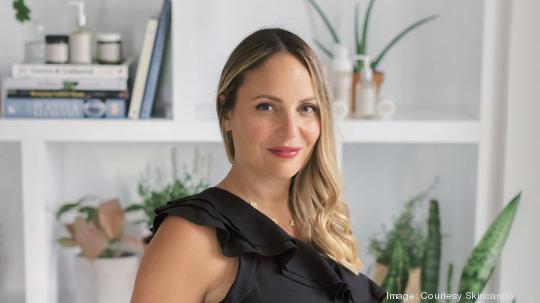
Sara D’Amelio, owner of Silver Spring beauty company Skincando, geared up for the pandemic as soon as hand-washing and sanitizing emerged as vital methods to protect against Covid-19. She pivoted her marketing strategy to focus on the healing effects of her staple product, Combat-Ready Balm, as a remedy for dry and itchy skin. And soon, she saw sales skyrocket.
During coronavirus, D’Amelio has updated her marketing strategy, adding a weekly e-blast and “more structured” social media approach — which, she said, has helped grow online sales by 30%.
“Revenue is still going strong and is up about 50% after the initial spike because people have been very focused on their skin care routines and they are also dealing with new skin inflammation from wearing masks,” she said in an email to the Washington Business Journal.
The company has also brought in about 1,000 new online customers as a result, she said. And it’s on track to grow revenue by 30% year-over-year — beating her initial projection of 25% — for 2020.
It hasn’t been all sunshine and rainbows. Skincando’s wholesale business is down, promotional events have disappeared and spa services at the company’s private Garden Spa — which spiked when she first reopened during the pandemic — have since tapered off. The company now sells in about 125 stores, down from 150 because some businesses have shut down amid the economic crisis. But, D’Amelio said, Amazon orders are up 25% and online orders have surged 45%.
Heading into the holiday season, the company will add signature candles and a new kit of miniature products, she said. And heading into 2021, she’s keeping her an eye on online marketing and product expansion.
Adaptive Phage Therapeutics Inc.
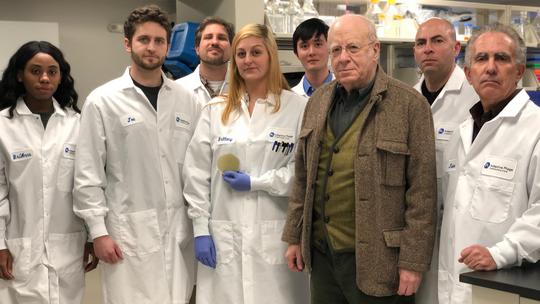
The Covid-19 outbreak didn’t stop Adaptive Phage Therapeutics from working to take down superbugs, but it did create additional opportunities for the Gaithersburg biotech.
First, the funding: The Maryland biotech is planning to open a $30 million Series B round this year, to fuel expansion of the company’s clinical pipeline. It’s been raising $7 million in new funding with the Mayo Clinic as its lead investor, shooting to close that round in the next few weeks, CEO Greg Merril said in an email.
The company — which he launched with his father in 2016 out of National Institutes of Health research in collaboration with the Navy — has raised $38 million to date, including a previous $7 million round and a $10.2 million contract with the Department of Defense.
APT is also growing, now recruiting for numerous microbiologists, manufacturing and clinical roles, Merril said. And to accommodate those people, the company “just signed terms” to more than double its existing office and lab space in Gaithersburg. That comes on the heels of multiple accolades, including recently winning “Emerging Life Sciences Company of the Year” from the Maryland Tech Council.
It follows a $9.8 million DOD contract for research and development of Covid-19 vaccine candidates using its phage-based approach, which involves targeting and killing specific pathogens using its collection of viruses. That’s alongside APT’s work in targeting drug-resistant bacteria.
Kaiser Permanente of the Mid-Atlantic States
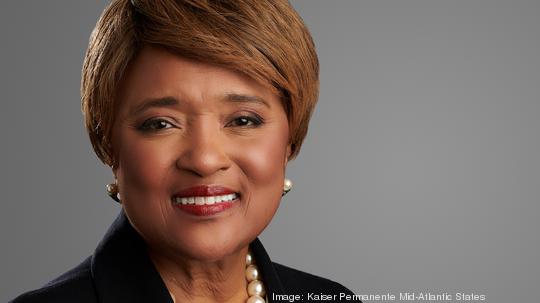
Kaiser Permanente of the Mid-Atlantic States has only picked up speed during the pandemic, as it evolves both its physical footprint and role in the region.
Most recently, that growth came in the form of a new 48,000-square-foot Hyattsville medical center, at 5620 Ager Road, intended to replace an older facility on nearby Belcrest Road. The new Prince George’s facility aims to open in the third quarter of 2022.
It joins a growing list of Kaiser’s regional projects, including its Haymarket Crossroads Medical Center near Interstate 66, one of three locations it opened last year in addition to its site at The Exchange at Potomac Yard and its Colonial Forge Medical Center on the Stafford (Virginia) Hospital campus. Kaiser also opened an administrative and IT facility near the New Carrollton Metro station in 2018. And it’s working toward delivering facilities in Bowie, Woodbridge, Springfield, Rockville and Timonium, Maryland.
They’re all pieces in an aggressive expansion KP has been pushing in the D.C. area, with the ultimate goal of serving more members.
“There is tremendous opportunity in this region, and we expect and plan to continue our growth,” said Ruth Williams-Brinkley, regional president for KP’s D.C.-area division, in a July interview.
Williams-Brinkley assumed the role at the beginning of June after serving as president of Kaiser’s Northwest territory. She succeeds Kim Horn, president of the local Kaiser Permanente affiliate since 2012, who was promoted this summer to executive vice president and group president for Kaiser markets outside of California.
She leads the organization in a period already marked by new technology and services. KP rolled out a new social health network, called the Mid-Atlantic Community Network, to help address social determinants of health for its more vulnerable patients. It has also ramped up telemedicine in the face of coronavirus, bringing to scale its home-based virtual care. And it’s taking steps nationally to address health care disparities among communities of color, with two initiatives: a $60 million investment partnership with the Local Initiatives Support Corp. to provide loans to more than 2,000 businesses owned by underrepresented groups; and a partnership with Pacific Community Ventures and the Initiative for a Competitive Inner City to provide $15 million in grant funding for those owners — for training, networking and recovery and growth capital.
Kaiser Permanente of the Mid-Atlantic States now serves nearly 800,000 members with 38 medical facilities throughout D.C., Maryland and Virginia. Its parent network encompasses 12.4 million members in eight states and the District.
Viela Bio Inc.
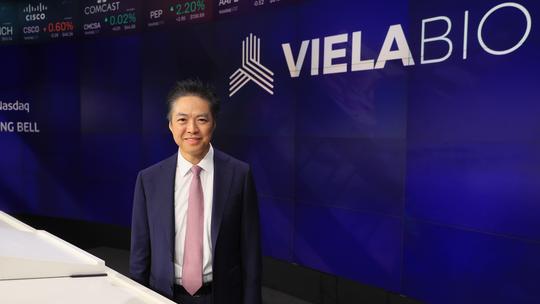
Viela Bio (NASDAQ: VIE) got the green light to take its first drug to market in June — three months into the global pandemic.
The Gaithersburg company had already crafted a sales strategy long before winning that approval from the Food and Drug Administration to commercialize Uplizna, its treatment for neuromyelitis optica spectrum disorder, a rare autoimmune disease that causes inflammation of the optic nerve and spinal cord and could result in irreversible blindness and paralysis.
The biotech, up to more than 150 employees, started building a sales team late last year in preparation for a launch, and has expanded into three facilities: two in Rockville and one in Gaithersburg, at the former MedImmune headquarters. It’s also continuing to grow that employee count, CEO Bing Yao said in July. “Our hiring plan is to get above 180 employees by the end of the year.”
Sure, the timing is significant given the coronavirus era. But it’s also notable because Viela got a product to market — a feat only a small handful of local biotechs have accomplished — after just two years in existence.
“When you actually hear that you got a drug approved? Wow. That feeling is, wow. All that work people have done, all the efforts by the team, it’s extremely unbelievable,” Yao told us previously, adding: “A lot of people work in the industry for many years, some for a decade or even longer. They spend all their lifetime in the industry and not all of them see a drug approval, at least that are deeply involved in that approval.”
Viela spun out from MedImmune, now part of AstraZeneca, in February 2018. The company secured $250 million in a Series A round upon its launch and a subsequent $75 million Series B round in summer 2019. Then it planned its IPO and went public in October 2019.
It’s now looking to apply the core molecule in Uplizna to other diseases, beyond NMOSD. That includes myasthenia gravis, which causes weakness in the skeletal muscles and breathing difficulties, for which Viela has received FDA clearance to start a pivotal phase 3 study this year. Viela is also eyeing another group of autoimmune conditions with a phase 2B trial, set to start in the second half of this year, including in cases of kidney transplant rejection and Sjögren’s syndrome, which causes dry eyes and mouth.
Socially Determined

D.C.’s Socially Determined started 2020 with the intention to grow — and, of course, no clue how lasting the coronavirus pandemic would be for its both its business and clients.
But the analytics startup set out to tackle the pandemic head-on, armed with $11.1 million in fresh funding after surpassing its $10 million Series A target in January, and data as its weapon.
Socially Determined, which helps organizations better understand the health and social risks of the people they care for, expanded its business model to include the Covid-19 Social Susceptibility Index, which considers access to health care and other social risk factors — food insecurity, housing instability, lack of transportation and social isolation — during the crisis. It aims to pinpoint where there are pockets of risk, “where to expect increased numbers of people that require additional clinical medical and support services related to their situation,” said Dr. Trenor Williams, the company's co-founder and CEO, in April.
For its client base, which includes hospital systems, health plans, life science companies and foundations, the startup aggregates publicly available data from federal, state and local sources, combined with commercial data from vendors about communities, businesses and people. It then uses that information to identify the factors that put communities at higher risk, such as crowding — think: population density and average number of bedrooms per person in a geographic area; exposure to congregation spaces and colocation facilities such as jails; and vulnerability, based on public health and economic data.
And since its launch, the company has seen an uptick in demand in some of its sectors, it said in an email to the WBJ. While the health system and hospital portion of its business has slowed, it's seeing growth in the life sciences space. That has helped the business more than double revenue from 2019 to 2020, “and we expect to double again in size next year,” it said.
To keep up with growth, the 3-year-old health tech firm set out to double its 25-person team with new technical and data science employees.
“We are trying to manage through the Covid-19 crisis in a responsible way — cutting expenses where we can with the goal of coming out on the other side as a stronger company,” it said in the email. “Among our business goals in 2021, we plan to focus on driving adoption of our risk metrics and investing more into data science.”
Williams has a background as a family doctor and health system executive, and as an entrepreneur: He co-founded D.C.-based health care consulting firm Clinovations and later sold it to The Advisory Board Co., whose health care business in turn sold to Optum Health.



